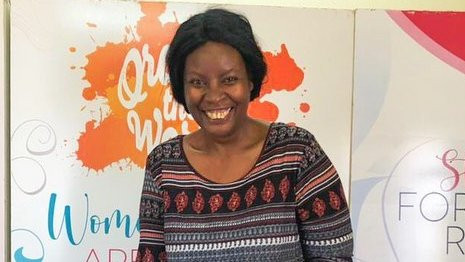
IT IS no secret that children learn by imitation.
We observe them from the time they are babies and we stick our toungues out at them.
With the fragile control over his own tongue, the baby makes a valiant effort to do the same.
Later, we potty train them by allowing them to see us on the toilet and pointing out to them the results so that they too can imitate and get a round of applause if they do it well.
Of course reward and punishment are also important tools in teaching children what is desirable, but primarily copying what we do is what drives them to do the same.
What many parents do not think aboutis the effect on their children of watching how they manage self. A good example is positive and negative self talk.
When a child grows up listening to parents describing themselves as “victims of the system”, as people institutions don’t care about, or as ones whose opinions don’t matter, it is difficult to see how that child can grow up feeling like an empowered, worthy adult who has the capacity to effect change and create the world he desires.
By contrast, a child who grows up listening to adults around him talk actively about how they are going to make things happen, how they a have the ability to shape the future and make their dreams come true, and then sees them go on to do this, she is likely to find herself with a positive sense of her own control over destiny.
- Chamisa under fire over US$120K donation
- Mavhunga puts DeMbare into Chibuku quarterfinals
- Pension funds bet on Cabora Bassa oilfields
- Councils defy govt fire tender directive
Keep Reading
A few years ago, I had the pleasure of listening to Lakita Garth speak. A renowned sexual purity advocate and abstinence teacher, Garth regaled the audience with tales of her strict upbringing in Alabama, US.
More interestingly she spoke about how her family’social circle included the likes of Martin Luther King (Jr). “I come from a line of Christians that believe your faith must impact the culture.” She said: “Growing up, I was taught that rights and responsibility went hand in hand.”
It’s easy to see how someone who grew up surrounded by mindsets such as this can become a powerful advocate in an area that so many are afraid to preach about today.
Another success woman deeply influenced by the conversations in her home is South African business woman Wendy Applebaum.
Quoted in the August 2012 issue of Forbes Africa, she says: “My father had a wonderful way of verbalising what he was doing,” describing how dinner in their home was like being at Harvard Business School: It was like living in an MBA class.
Children need to see and hear self-belief, self-affirmation and self-care being lived out by adults around them if they are to grow up into confident, self-assured adults who have a strong sense of their worth.
What are the children in your life learning from the way you talk about politics, work and relationships?










